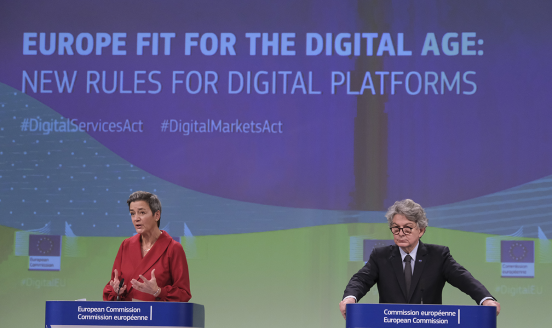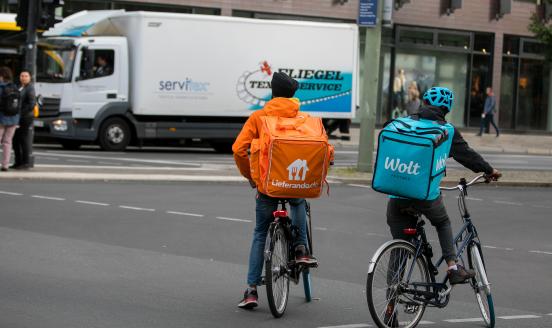Waging war on cartels
On May 14, European Commission officials seeking proof of oil price fixing raided three major oil groups. Just a few weeks before, surprise
On May 14, European Commission officials seeking proof of oil price fixing raided three major oil groups. Just a few weeks before, surprise inspections were carried out at the premises of major European sugar producers. And a long-awaited decision on the Euribor scandal, in which banks and brokers are alleged to have manipulated euro interbank rates, is expected soon. In total, the results of 22 cartel cases will hit the headlines in the coming months or years. The cases cover sectors including cement, retail food packaging, trucks, smart chip cards, power cables and shrimps, to mention just a few. Collusion is a more pervasive phenomenon than commonly thought.
How does collusion affect us? Bruegel has published a Policy Brief on collusion in Europe. Based on a number of conservative assumptions, we estimate that over 12 years, collusion could have drained value from customers in cartelized markets of up to €320 billion, or more than 3 percent of euro-area GDP in 2012. Agreements to limit competition have serious detrimental effects on the economy. This is not just a matter of ‘unfairness’. Economic theory suggests that these agreements shrink the pie. Restrictions of competition misallocate resources, so that opportunities to create value are blocked and total welfare in an economy is reduced. Moreover, with no competition, dynamic incentives to improve, to become more efficient and beat competitors, are lost. Final consumers may be harmed directly, because end-customer prices are directly increased. But, as it is often the case, they can also be indirectly harmed if cartels materialise further up the value chain. If raw input prices are increased, downstream producers increase their prices, shrink their production or exit the market. The economy’s engine slows down if its fuel cost increases. When banks manipulate interest rates it has ramifications for small enterprises’ ability to access credit. Artificially expensive oil derivatives would increase firms’ transport costs. Building a road, a school or a hospital may become unaffordable if cement producers split the markets so that they do not compete against each other.
Fighting collusion. The best way to fight collusion is to make it unprofitable. Measures can be taken to make cartels less stable, for example by favouring the entry of new companies into markets. But it can also be made clear that if a company infringes the law and is caught, it will pay a high price. Antitrust fines serve that purpose. Optimal fines should take into account the expected profit yielded by collusion and the probability of a cartel being sanctioned. It is difficult to get the right numbers, but the consensus among researchers is that to ensure deterrence a fine should be at least six to seven times the extra profits yielded by collusion. The European Commission has toughened its fining policy since the introduction of the new fining guideline in 2006. However, fines still seem far from the deterrent level. We estimate that in a significant number of cases fines not only are far below their optimal value, they may even be so low that they do not to fully offset the profits to be had from cartels. In other words, with such fines, being in a cartel pays off, even if it is ultimately uncovered.
Increasing deterrence. Further increases in fines might be difficult to implement, however. High fines might hamper the economic viability of a company and are, therefore, not deemed credible. We observe that during the economic crisis, the European Commission adopted a more lenient approach. There would be little gain for consumers, if they first paid too-high prices because of a cartel, and then face high prices because competition is reduced if companies are pushed out of markets by overly heavy sanctions.
The solution must therefore be found elsewhere. Researchers increasingly support the view that corporate fines should be complemented by personal sanctions for company managers who take the decision to join a cartel on behalf of shareholders. Unlike the US administration, however, the European Commission does not have the power to impose criminal sanctions.
A more practical solution in the short term is for the Commission to reduce the time needed to complete cartel investigations. Currently, it takes between four and six years to see the end of a cartel proceeding after an investigation is launched. Taking into account the average cartel duration, this means that an infringer should expect to be sanctioned 10 to 20 years after making the decision to break the law. In that time, managers will change jobs or even retire, essentially reaping the benefit from the infringement without fearing any cost. Increasing resources dedicated to inquiries and cutting investigation time would reduce that risk. This would also increase corporate fines in net present value at the time of the starting of the cartel, since fines would be discounted for a shorter period of time. We estimate that halving investigation time would correspond to a 10 percent increase in the expected fine.
These results should be read in the context of the discussion about cuts to the Commission’s budget. While our analysis advocates an increase in resources dedicated to investigations, it conversely suggests that reducing the resources currently allocated could have critical consequences in terms of reduced deterrence and, therefore, increased collusion in the European economy.



